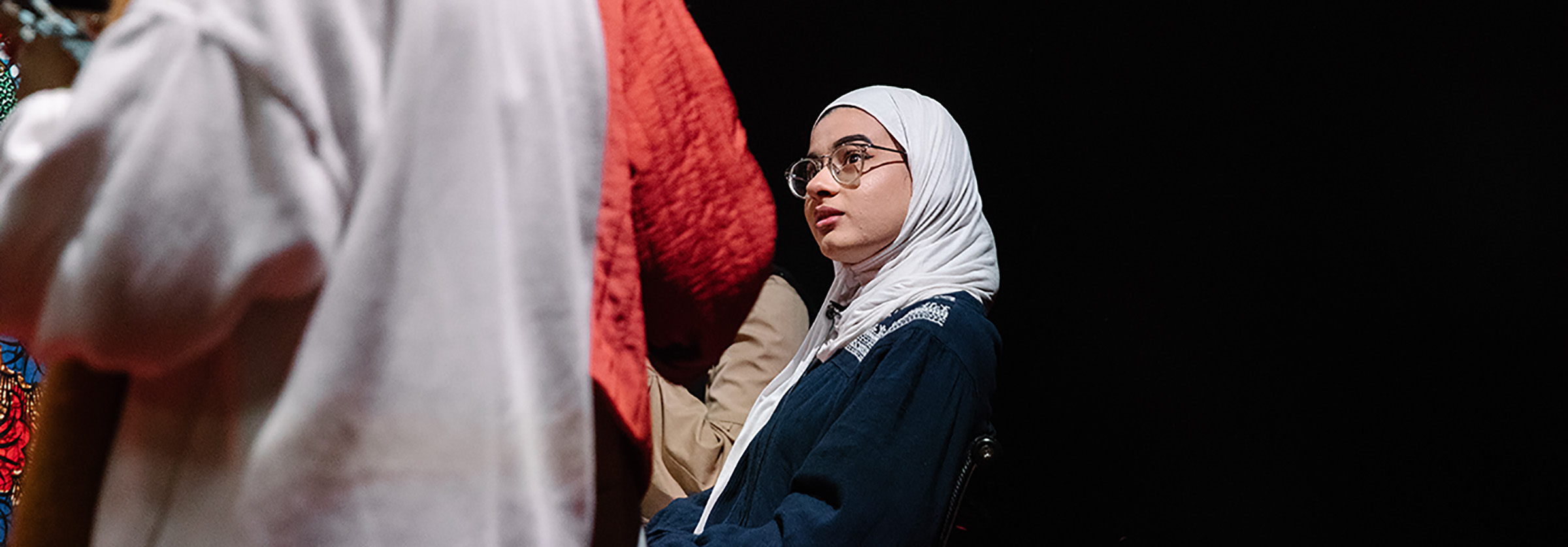Last week LCF was pleased to work with Arts Students Union and La Marche Fashion on the second in a series of talks called Fashion Focus, aiming to address an issue in the fashion industry related to equality, diversity and inclusion.
This chapter was called Fashion Focus: A panel discussion on religion and modesty in fashion which explored how the Muslim faith is represented in all areas of fashion from modeling and representation, to the rise of ‘Modest Fashion’, and opportunities for designers of the Muslim Faith.

Speakers were:
- Aminah Ali – Chair. Creative director and founder of ‘Redefining Concepts’ collective. She has recently been featured in an advertising campaign for Adidas
- Aneesa Qureshi – LCF alumna and founder of lingerie and nightwear brand Hasaria.com
- Asha Mohamud – a model currently signed to Next (the second Hijabi model to sign at the agency), and founder of community organization ReallyReal
- Memunatu Barrie – a textiles designer studying at Central Saint Martins, who recently showed her collection as part of the 199Z Diversity Revisited fashion show
- Abigayle Andre - founder and owner of modest fashion brand Modesa
- Ruby Aslam – founder and owner of modest fashion brand Till We Cover

Amina started by speaking to Abigayle and Ruby about their modest fashion brands. They discussed their brand origins, which stemmed from wanting more practical clothes, brand voice, staying true to their ethics such as working with a Halal supply chain, and Till We Cover showing at Istanbul Modest Fashion Week. They are both non Hijabis, whilst 98% of their clients wear Hijab, but both spoke about the importance of designing for your customer, understanding your audience and getting inspiration from them.
The second part of the evening was a panel with Asha, Aneesa and Memunatu. They discussed how to use their platforms and popularity to express themselves as individuals, and to bring opportunities to help others who might feel marginalised. They discussed designing for their clients as individuals but how to bring in their own inspiration from their heritage and experiences. They discussed, after a question from a Muslim male model in the audience, the different pressures for females and males, and how modesty is served by markets for both genders. The designers vowed that they would expand into the male market in the future.

All agreed that the term modesty was a broad term that means more than just religion, and can be interpreted differently for each person’s journey. The panel felt positive for a growing market and understanding in the future.
- Find out more about Arts Students Union
- Explore LCF undergraduate and postgraduate courses
- What’s on at LCF: open days and events
- More LCF Stories
- All images by Unai Mateo Lopez

